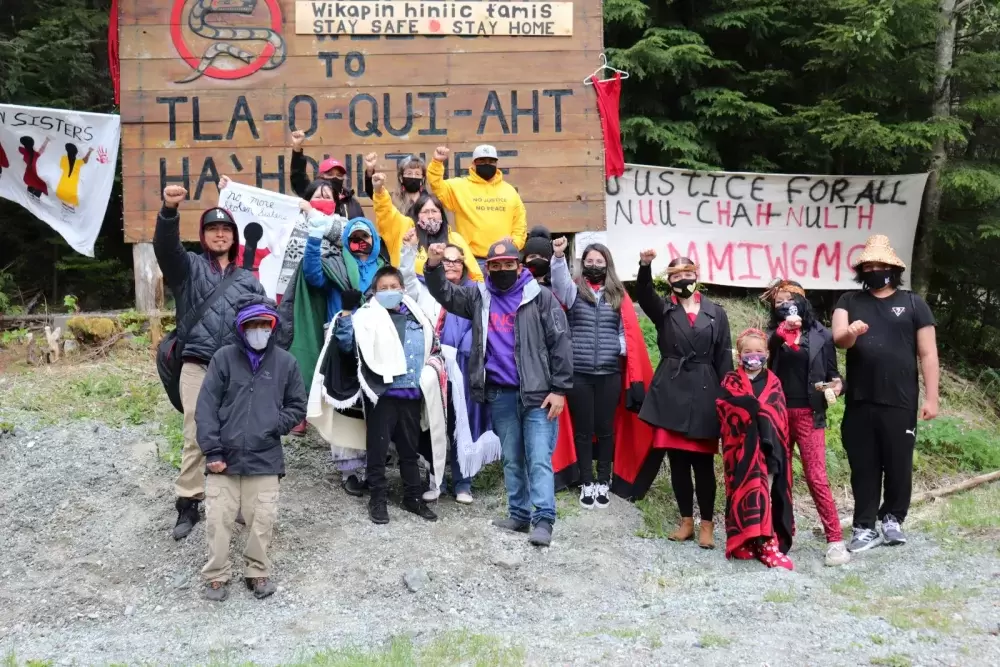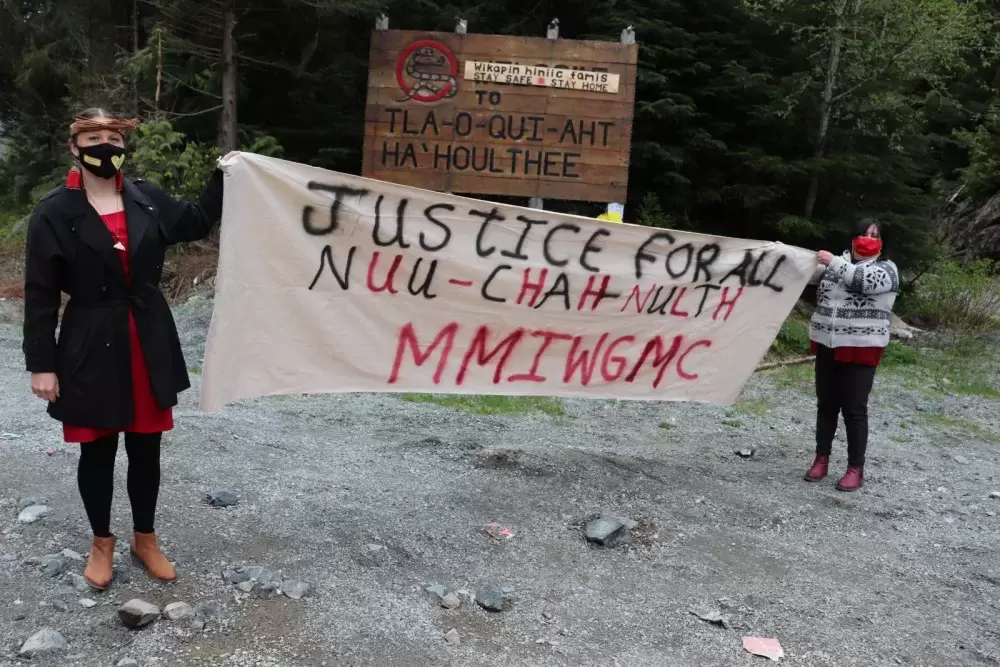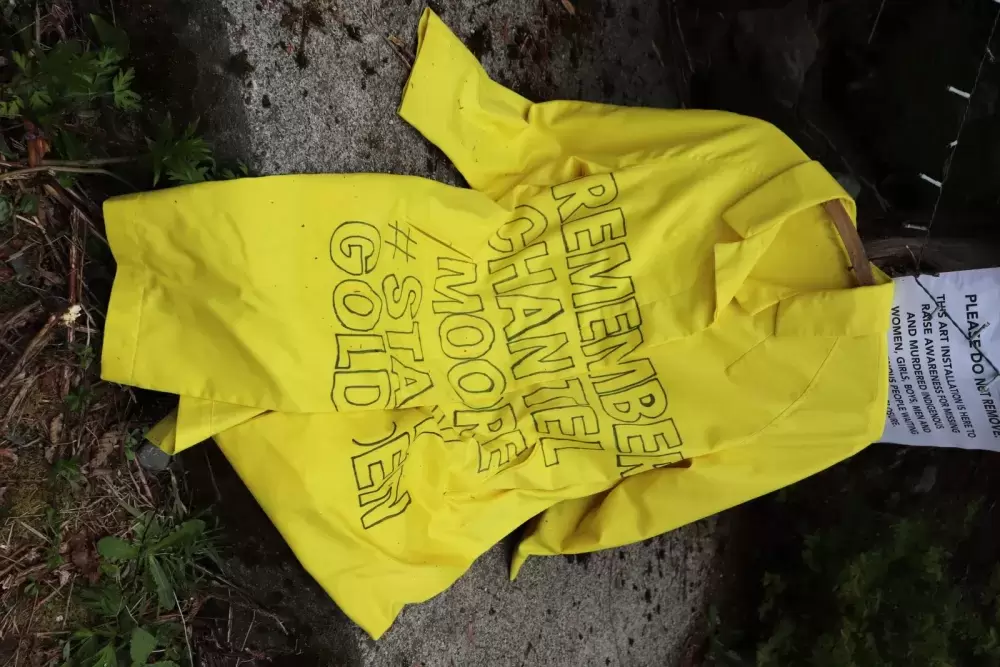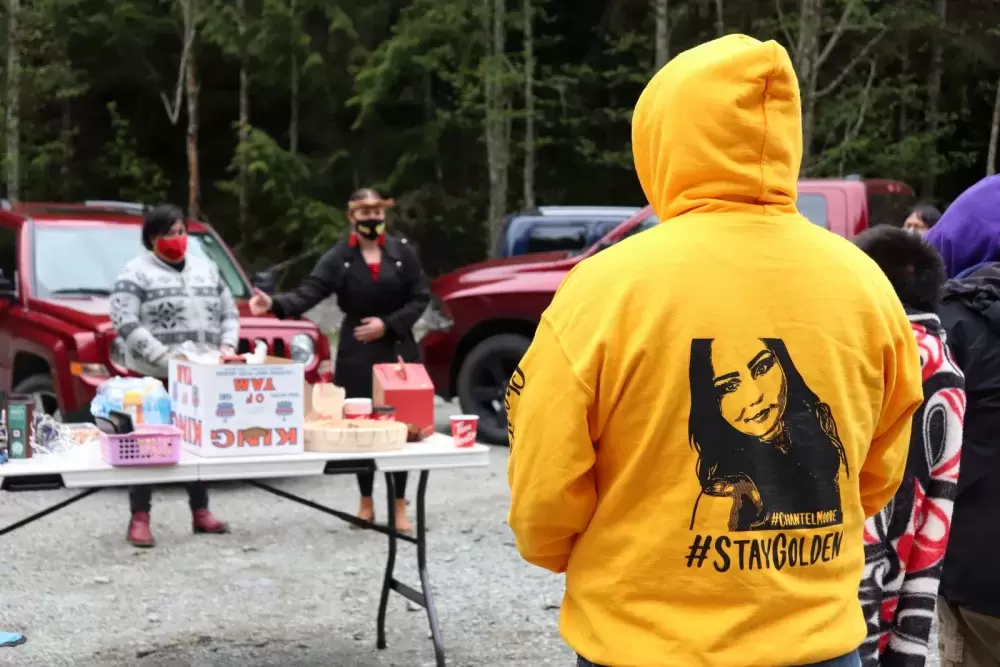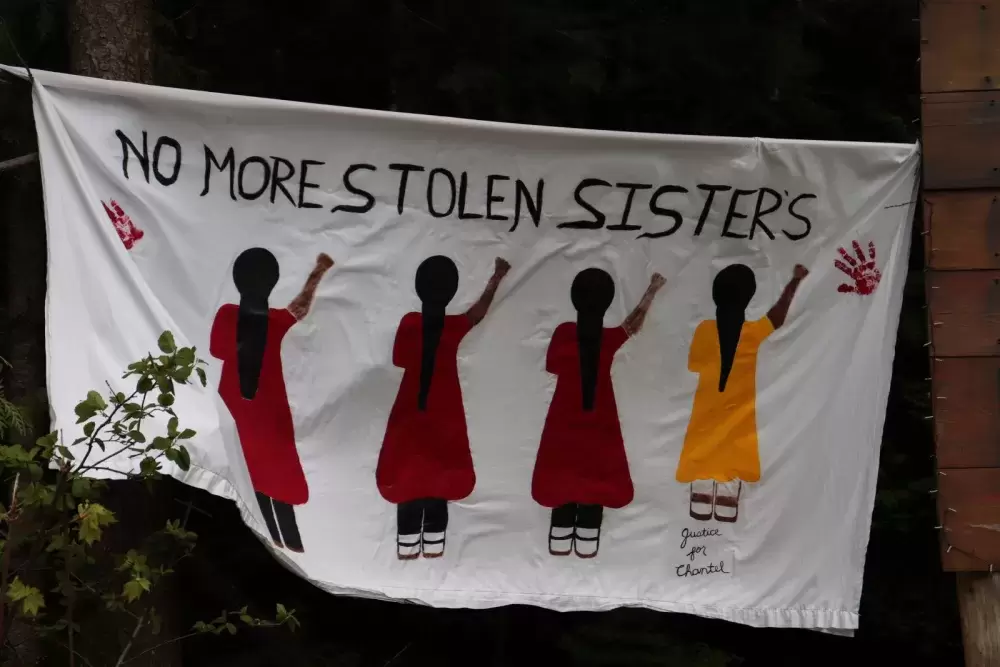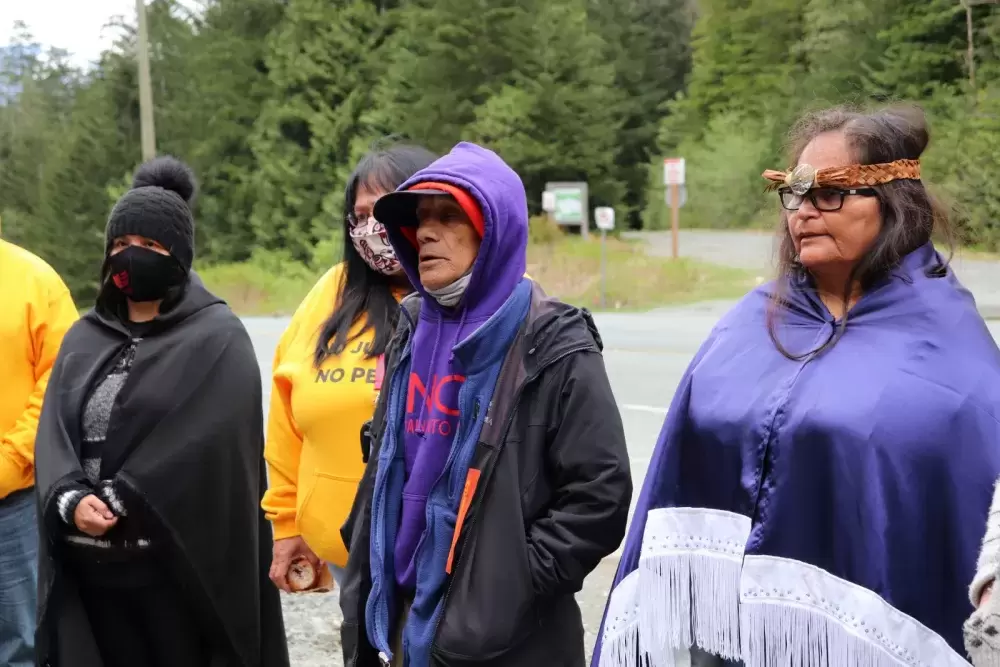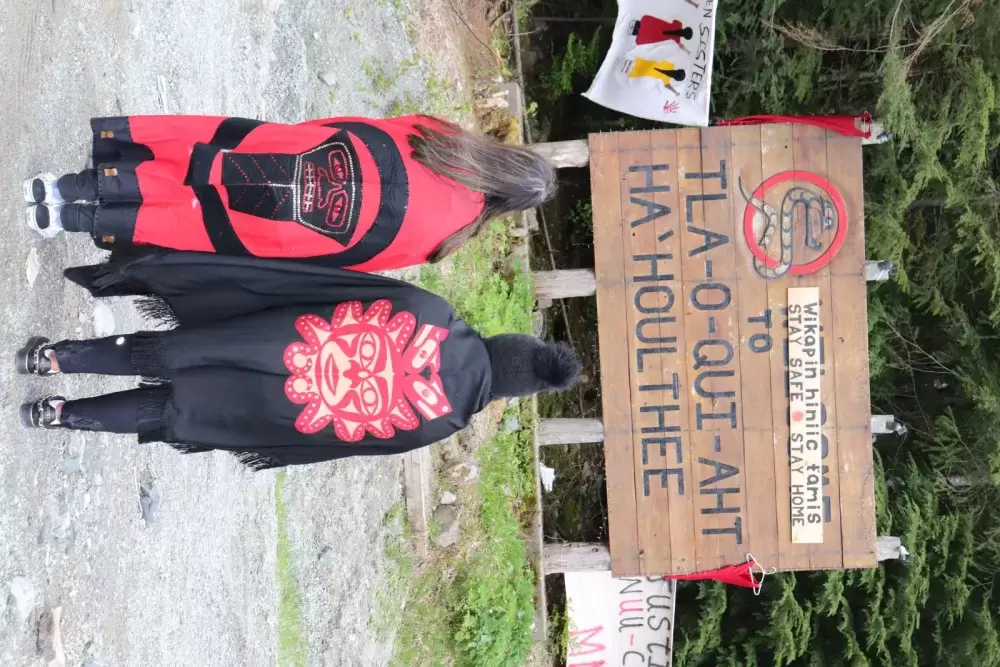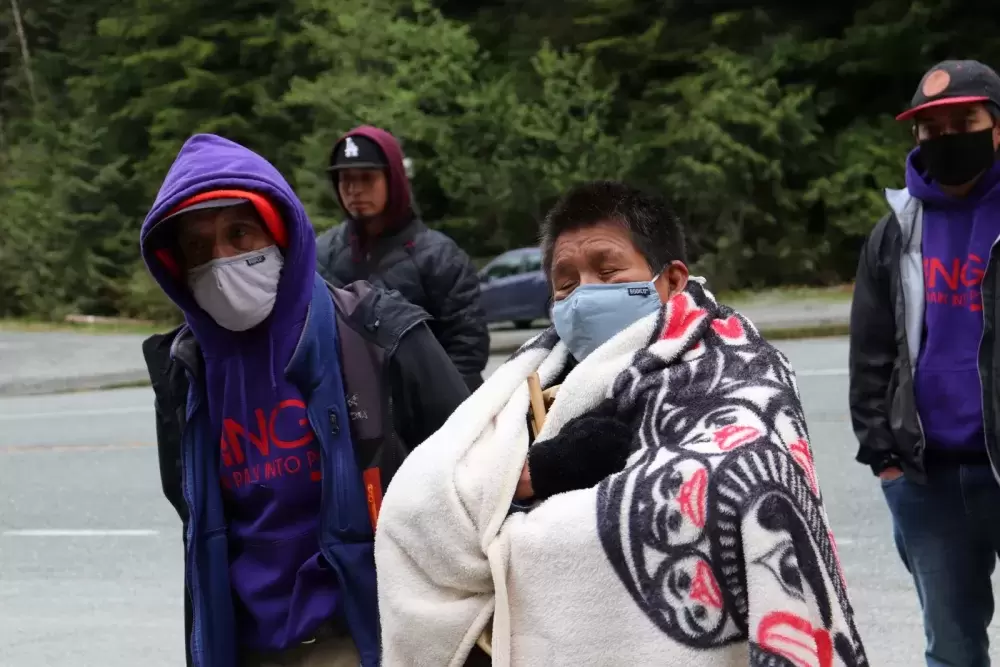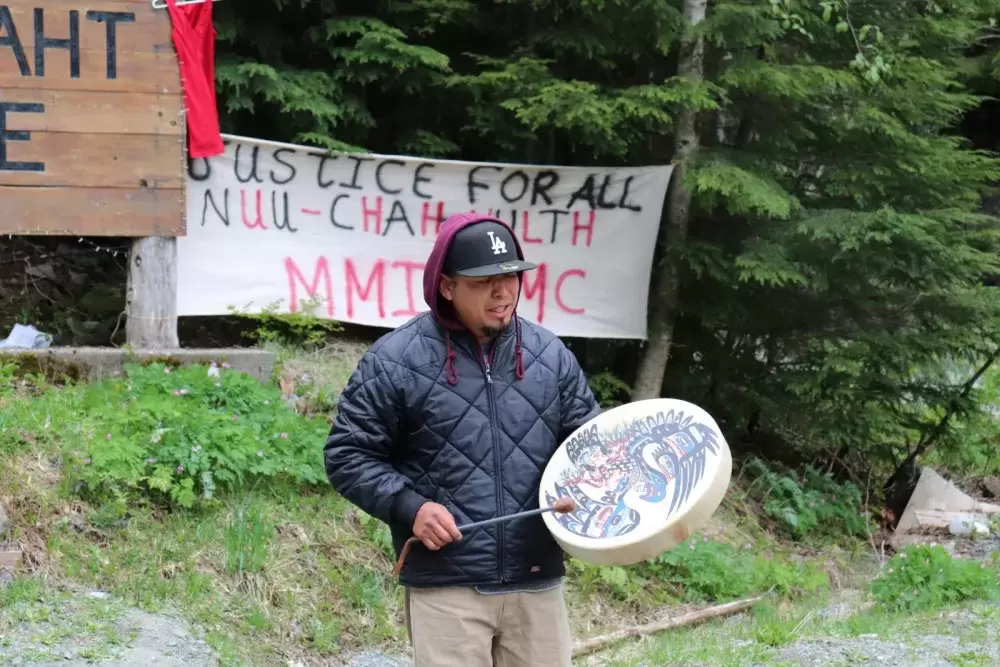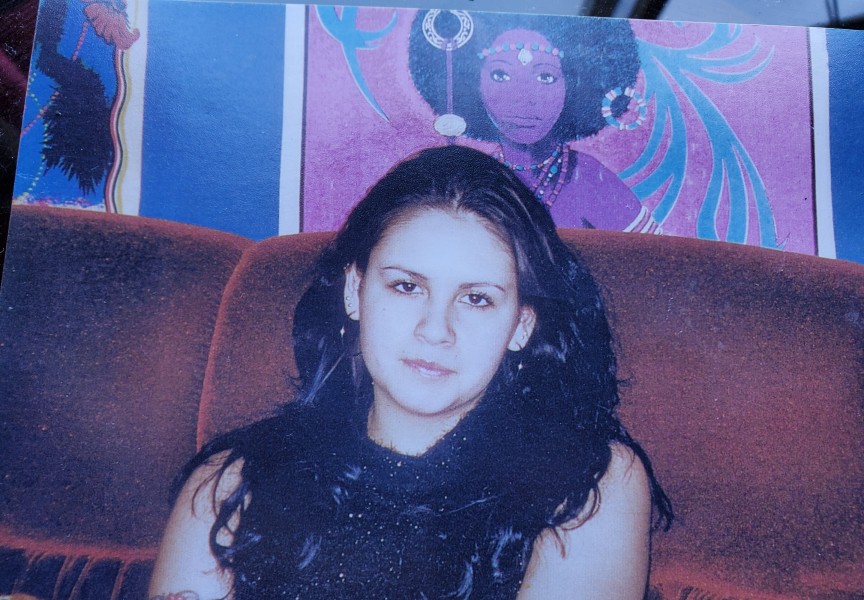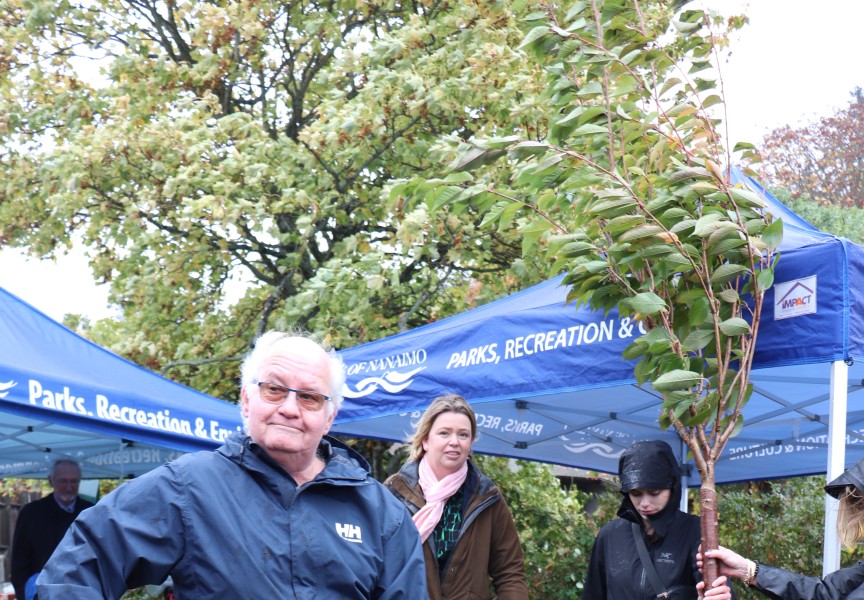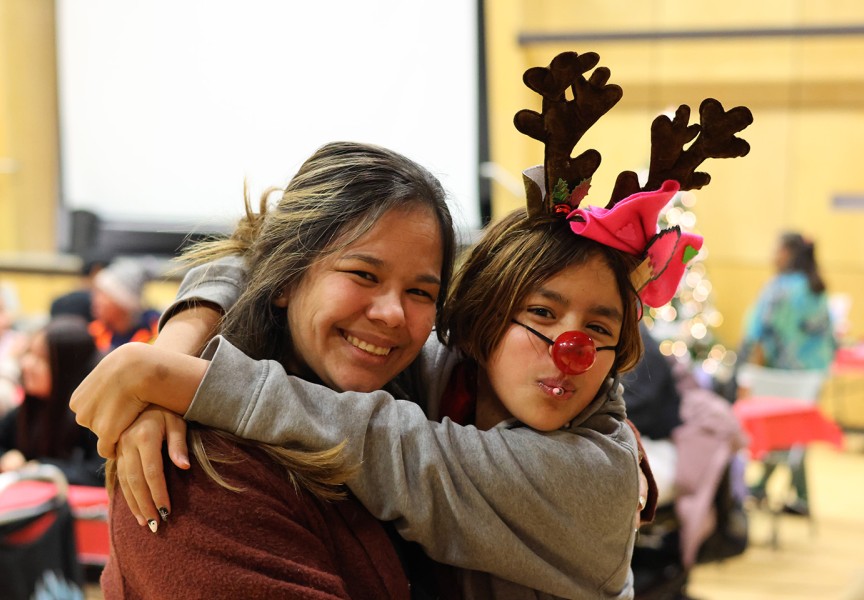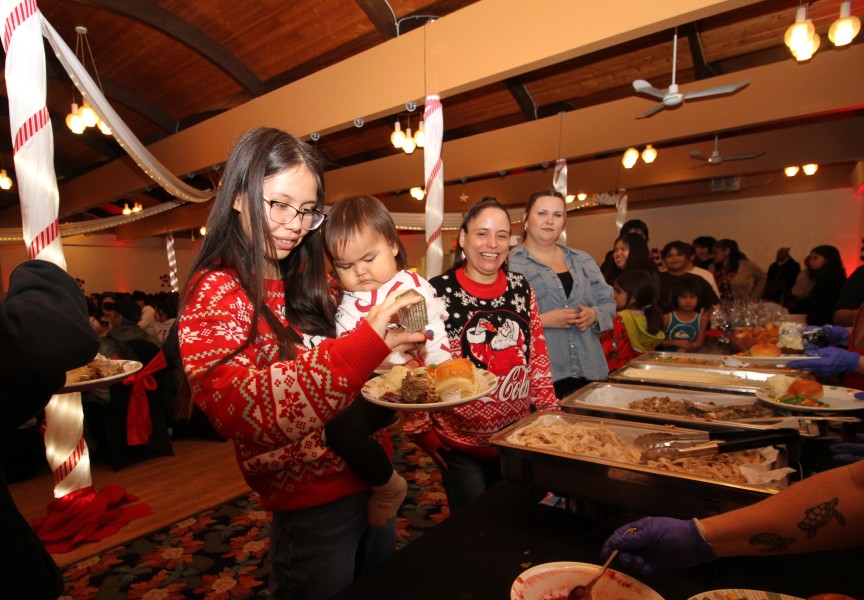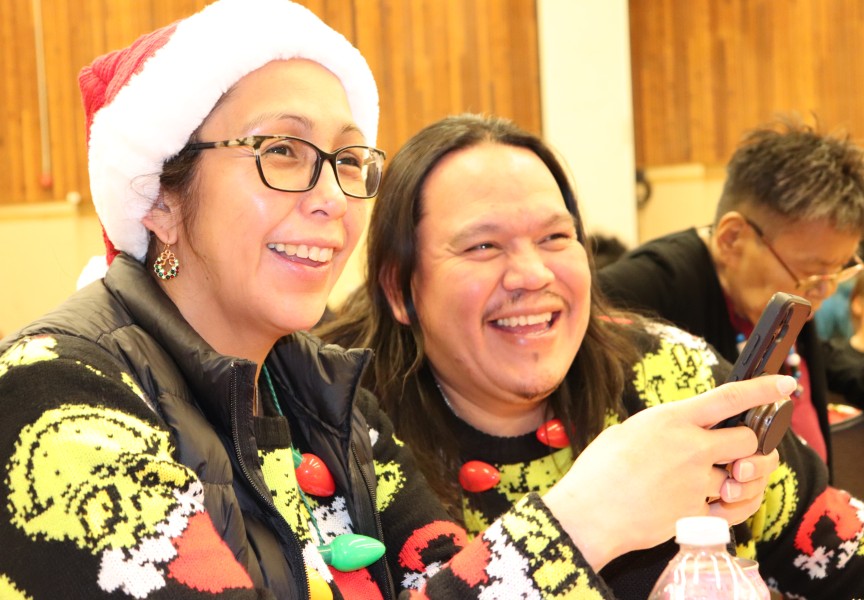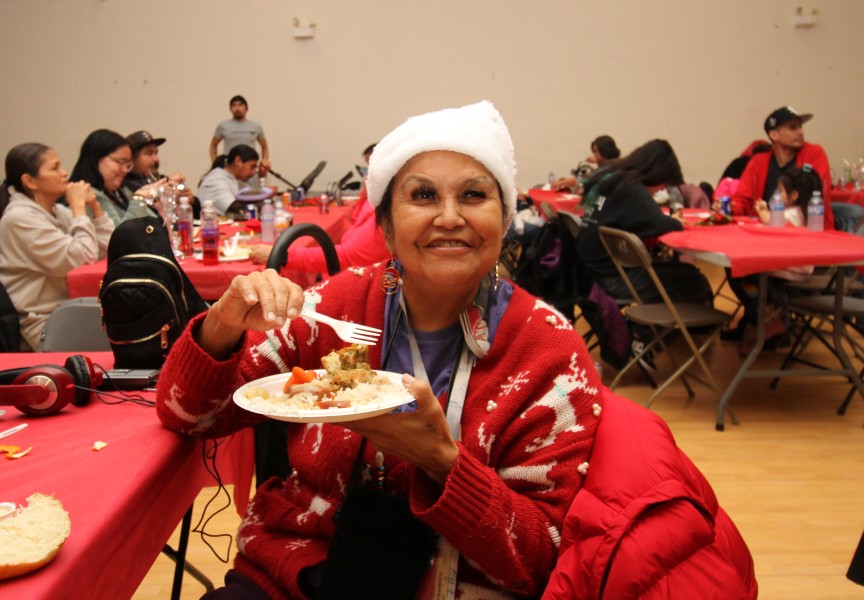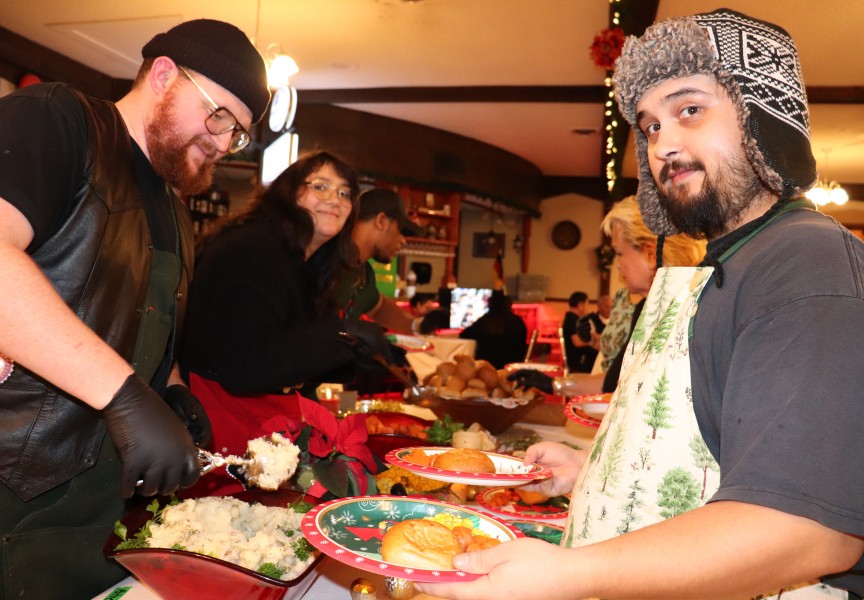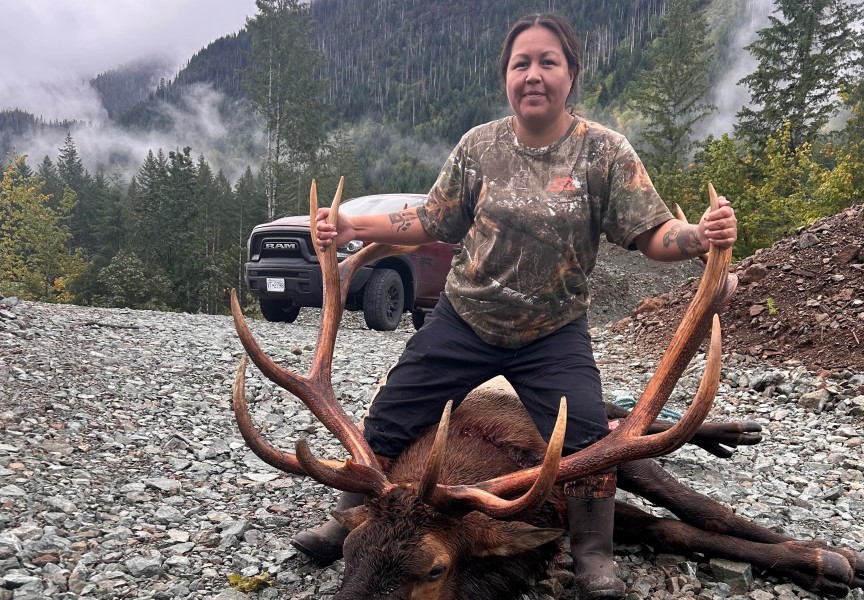A carved wooden sign at Sutton Pass summit marks the entrance to Tla-o-qui-aht territory. That is where a small group of people gathered to remember Nuu-chah-nulth loved ones that are missing or were murdered in an event organized by Nora Martin of Tla-o-qui-aht.
May 5 is recognized across Canada as a national day of awareness for missing and/or murdered Indigenous women and girls. Also known as Red Dress Day, individuals across the country hang red dresses in highly visible places to draw attention to the disproportionate number of missing and murdered Indigenous women, girls, trans and two-spirit individuals in Canada.
Today, Aboriginal groups and their supporters across Canada are promoting awareness of missing and murdered Indigenous women and girls. The Native Women's Association of Canada (NWAC) has documented 582 cases since the 1960s, but says there are likely many more.
The people of Tla-o-qui-aht remember eight of their members that are missing or were murdered in recent years.
“That is a lot for our nation,” said organizer, Nora Martin.
Martin is a health liaison worker for her nation, but she also volunteers her time to support grieving community members, organizing public events like the red dress gathering that took place on Sutton Pass on the morning of May 5.
When she began planning the event more than three weeks earlier she wasn’t aware that the road would be closed for the day due to a highway construction project. That meant that there was no passing traffic to see the colourful signs and dresses that were on display. But it made for a quiet and solemn event as family remembered their loved ones taken too soon.
A brisk mountain breeze kept the red dresses, hung in trees, fluttering above a bed of wild bleeding-hearts.
A cleansing ceremony and prayer was performed by Josie Johnston and her son before John Lucas offered a prayer. It was Lucas’ step son, Julian Jones, that was shot by police at his family home in Opitsaht earlier this year.
Following the highway-side ceremony, the event was moved to Port Alberni’s 3rd Avenue, where the people marched with their banners, signs and red dresses. Martin said they would be joined by people of Tseshaht and Yuułuʔiłʔatḥ and would wind up their event at the Walmart parking lot on Johnston Road.
Martin said it is her hope that her people will form a society. One of her goals is to make a quilt featuring the faces of lost Nuu-chah-nulth loved ones.
“I hope it can be used as an educational tool in the future,” said Martin.
Martin is always there to lend a hand when it comes to the MMIWG movement. It has been nearly a year since her grandniece, Chantel Moore, was shot by police in a wellness check in New Brunswick and the family still has no answers.
“Our people are angry…frustrated,” said Martin.
She said TFN elder Rose Tom lost her son several years ago in Tofino’s RCMP cells. Back then, recommendations were made to prevent things like that from happening again but, according to Martin, none of the recommendations were implemented.
Despite her own personal loss, Martin helps others.
“I write letters on their behalf,” she shared. Of the dozens of letters written to politicians, she says she’s only ever received two responses.
“It’s like we don’t matter…who cares? So, what?”
She referred to a recent boat incident where two Ahousaht elders drifted for about three hours before they were rescued by Tla-o-qui-aht men after the Coast Guard failed to respond.
“It’s like Eddie and them on the ocean, nobody cares no matter what we do,” said Martin.
Of the police shooting death of Julian Jones in Opitsaht earlier this year, Martin said people are now afraid to call the police. She said people now feel fear when the RCMP are in their communities.
NTC Vice-President Mariah Charleson spoke at the gathering. She said that Canada is, in fact, a place where genocide persists against Indigenous people. She told the people that, together, we will be a big part of change in the country.
TFN Councilor Corine Ortiz-Castro (Martin) spoke on behalf of council, vowing to stand together with the grieving families and to be a voice for their lost loved ones.
The gathering ended with a self-composed healing song performed by Eugene Antoine of Tla-o-qui-aht.

